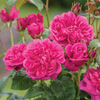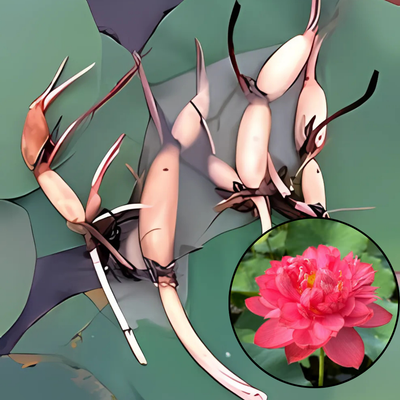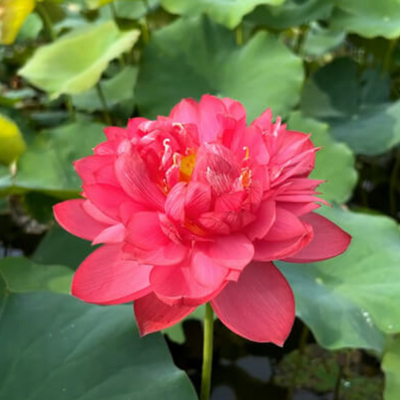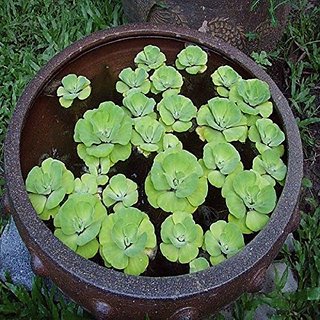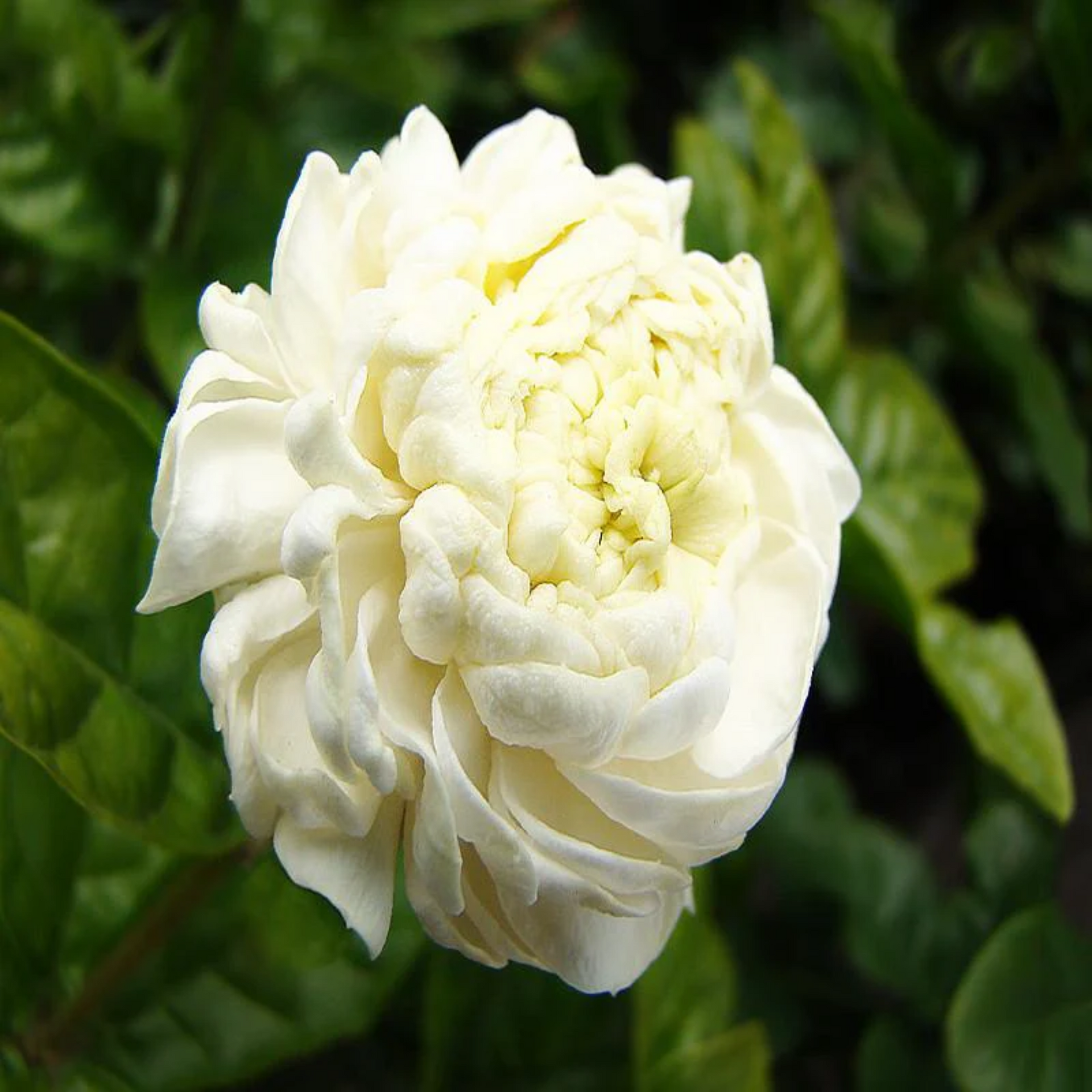
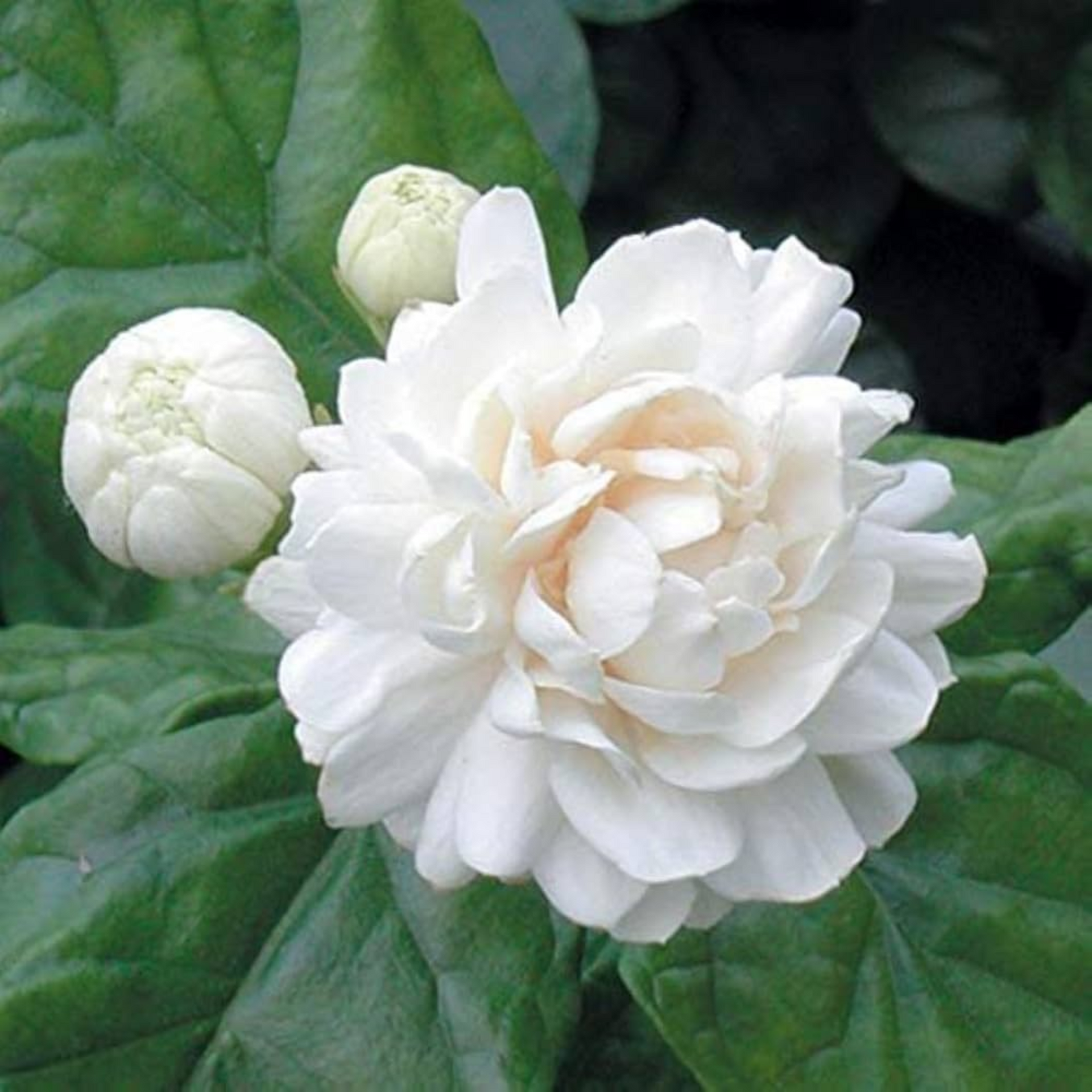
Mogra Plant Jasminum sambac Arabian Jasmine Double Petals Rose Shaped Big Flowers And Superb Fragrance
Guaranteed Safe Checkout
The Enchanting Elegance of Arabian
Jasmine Double Petals Plant
Arabian Jasmine, scientifically known as Jasminum sambac, is a name that conjures images of fragrant gardens and exotic locales. This beautiful flowering plant is renowned for its captivating aroma and delicate, white blossoms. While the single-petaled Arabian Jasmine is widely cherished, there exists a lesser-known yet equally enchanting variant - the Arabian Jasmine Double Petals Plant. In this article, we'll delve into the unique features and cultivation tips for this delightful floral gem.
The Allure of Arabian Jasmine Double Petals
- The Arabian Jasmine Double Petals Plant, also known as the "Mogra" or "Bela" in India, is a cultivar of the traditional Arabian Jasmine.
- What sets it apart is its abundant double-layered petals, which give the flowers a lush, ruffled appearance.
- These exquisite blossoms not only retain the classic Jasmine fragrance but also possess an added aesthetic charm, making them an ideal choice for ornamental purposes.
Characteristics and Appearance
- The Arabian Jasmine Double Petals Plant typically reaches a height of 3 to 4 feet when grown in optimal conditions.
- Its glossy, dark green leaves provide an elegant backdrop to the pristine white, double-layered flowers.
- These flowers are about 1 to 1.5 inches in diameter and are known for their profusion during the blooming season.
- They appear in clusters and release a sweet, intoxicating scent that is truly mesmerizing.
Cultivation Tips
Cultivating Arabian Jasmine Double Petals requires some care and attention, but the rewards are well worth the effort. Then are some crucial tips for successful civilization
Location:
Plant your Arabian Jasmine Double Petals in a location that receives partial to full sunlight. It thrives in warm and humid climates, making it an excellent choice for gardens in tropical and subtropical regions.
Soil:
Well-draining, loamy soil with a slightly acidic to neutral pH is ideal for these plants. insure good drainage to help root spoilage.
Watering:
Keep the soil constantly wettish, especially during the growing season. still, avoid overwatering, as this can lead to fungal issues.
Fertilization:
Apply a balanced, slow-release fertilizer during the growing season (spring and summer) to promote healthy growth and abundant flowering.
Pruning:
Regularly prune your Arabian Jasmine Double Petals to maintain its shape and encourage new growth. Pruning also helps improve air circulation within the plant, reducing the risk of diseases.
Support:
Since the plant tends to grow as a sprawling shrub, providing some support like trellises or stakes can help it maintain an upright form.
Pest and Disease Control:
Keep an eye out for common pests like aphids and whiteflies, as well as fungal diseases. Use organic remedies or consult a local nursery for suitable treatments.
A Fragrant Symbol of Love and Beauty
- Arabian Jasmine has a rich cultural significance in many parts of the world.
- In India, it is often associated with love and purity, making it a popular choice for wedding garlands and religious ceremonies.
- Its timeless fragrance has also made it a sought-after addition to perfumes and essential oils.
- The Arabian Jasmine Double Petals Plant takes this enchantment a step further with its unique, layered blossoms.
- Whether used as a garden centerpiece or cultivated in pots on your balcony, its ethereal beauty and heady fragrance are bound to captivate anyone who encounters it.
- the Arabian Jasmine Double Petals Plant is a true gem among floral varieties.
- Its exquisite appearance and captivating fragrance make it a cherished addition to gardens, celebrations, and homes across the globe.
- By following the cultivation tips mentioned above, you can experience the joy of nurturing this natural wonder and enjoy its timeless beauty for years to come.
Unlocking the Secrets of Cultivating Arabian Jasmine
Double Petals: A Fragrant Journey
Arabian Jasmine, scientifically known as Jasminum sambac, is a flower that has been cherished for centuries for its captivating fragrance and elegant appearance. Among its various cultivars, the Arabian Jasmine Double Petals stands out as a stunning choice for garden enthusiasts and flower aficionados. If you've ever dreamt of nurturing these exquisite blooms in your own garden, this article will guide you through the enchanting journey of growing and caring for Arabian Jasmine Double Petals.
Choosing the Right Variety
- Before delving into the art of cultivation, it's essential to understand the key characteristics of the Arabian Jasmine Double Petals.
- Unlike its single-petaled counterpart, the double-petaled variety boasts multiple layers of petals, creating a lush, opulent appearance.
- This variety is also renowned for its intoxicating fragrance, which intensifies in the evening, making it perfect for moonlit gardens or indoor spaces.
- When selecting your plant, make sure to buy a healthy specimen from a reputable nursery.
- Look for a well-branched plant with vibrant, glossy leaves and a strong root system.
- Double-check the label to ensure you're getting the Arabian Jasmine Double Petals variety.
Optimal Growing Conditions
Arabian Jasmine Double Petals thrive in specific environmental conditions. Here's what you need to provide:
Sunlight:
These beauties prefer bright, indirect sunlight. Place your plant in a location where it receives at least 4-6 hours of filtered sunlight daily. In warmer climates, some morning sun is beneficial, but ensure it's protected from scorching afternoon rays.
Temperature:
Arabian Jasmine Double Petals are sensitive to cold temperatures, so they're best suited for USDA zones 9-11. If you live in a colder region, consider growing them in containers that you can bring indoors during the winter.
Soil:
To avoid waterlogged roots, well-draining soil is essential. A mixture of potting soil, perlite, and organic compost works well. Ensure the soil pH remains slightly acidic, around 6.0 to 7.0.
Watering:
These plants appreciate consistently moist soil, but not soggy. Water them when the top inch of soil feels dry, and always use a saucer to catch excess water.
Fertilization:
Feed your Arabian Jasmine Double Petals every 4-6 weeks during the growing season (spring and summer) with a balanced, water-soluble fertilizer. Reduce or cease feeding in the fall and winter.
Pruning and Training
- Pruning is essential to maintain the shape and encourage prolific flowering in Arabian Jasmine Double Petals.
- Trim back leggy or straggly growth in late winter or early spring before the growing season begins.
- You can also pinch the tips of the branches to promote bushier growth.
- For a more compact and visually appealing plant, consider training your Arabian Jasmine into a trellis or espalier shape.
- This not only enhances its aesthetic appeal but also helps with air circulation, reducing the risk of fungal diseases.
Pest and Disease Management
- Keep a vigilant eye out for common pests like aphids, mealybugs, and spider mites.
- Regularly inspect your plant, and if you notice any signs of infestation, treat it promptly with insecticidal soap or neem oil.
- To prevent fungal diseases, avoid overhead watering and provide good air circulation around the plant.
- Pruning and maintaining healthy soil conditions will also help in disease prevention.

